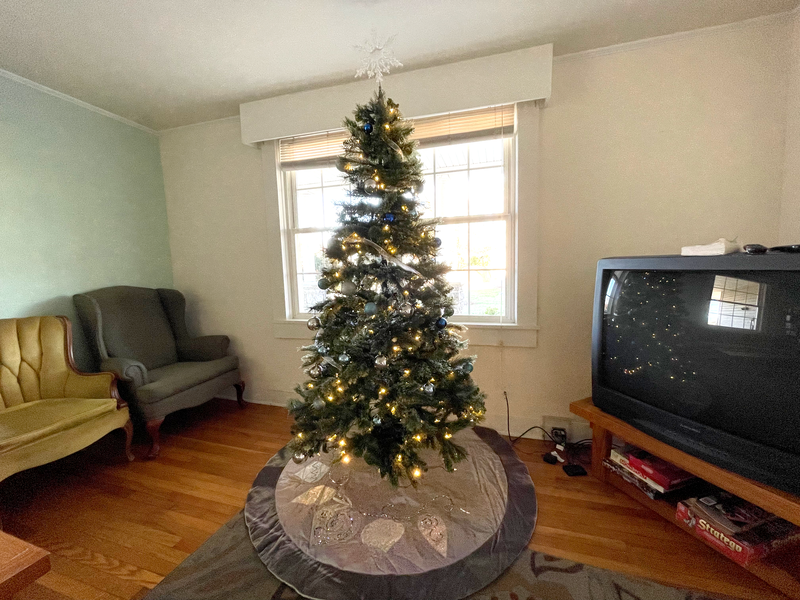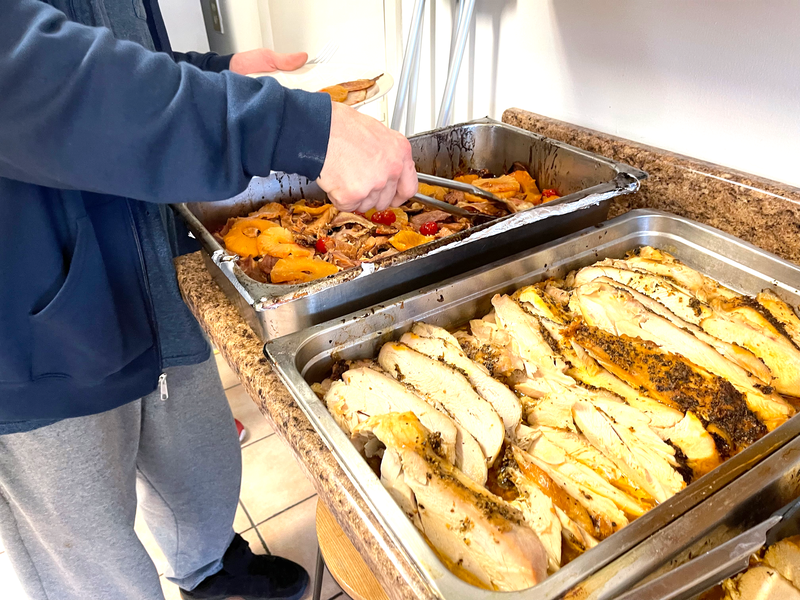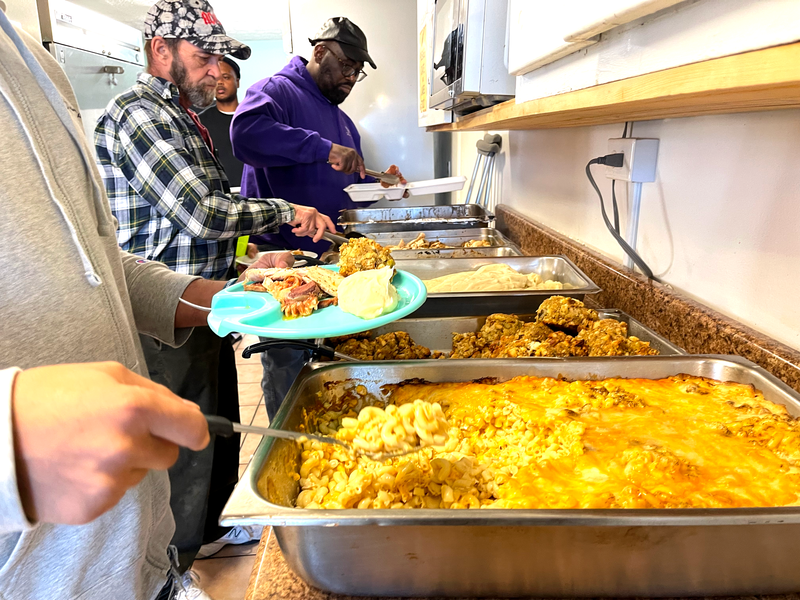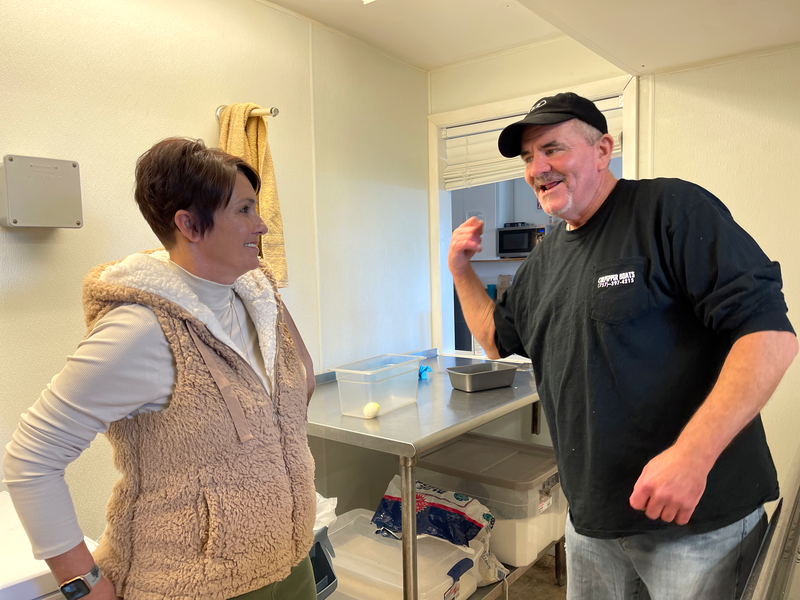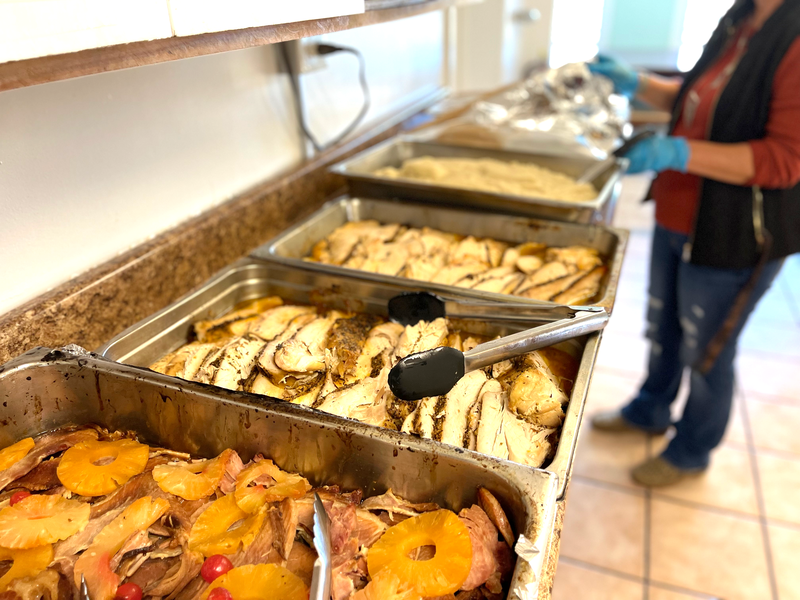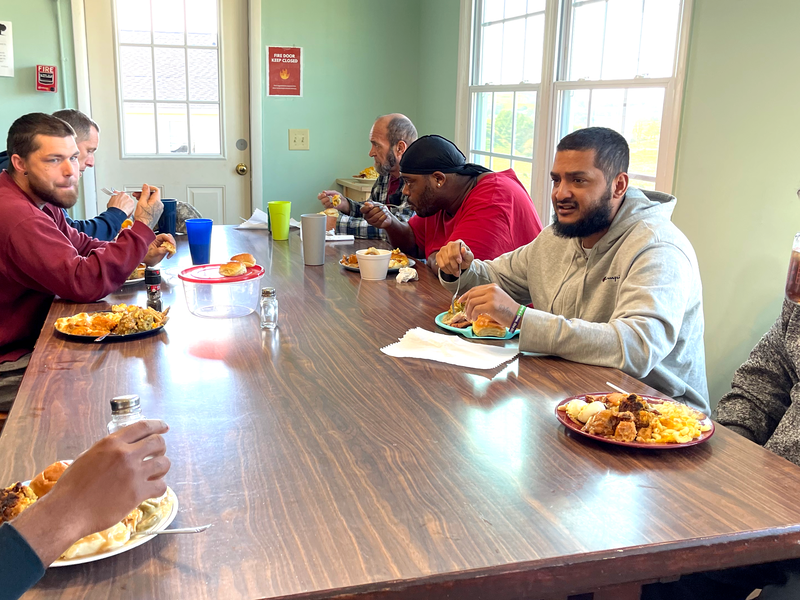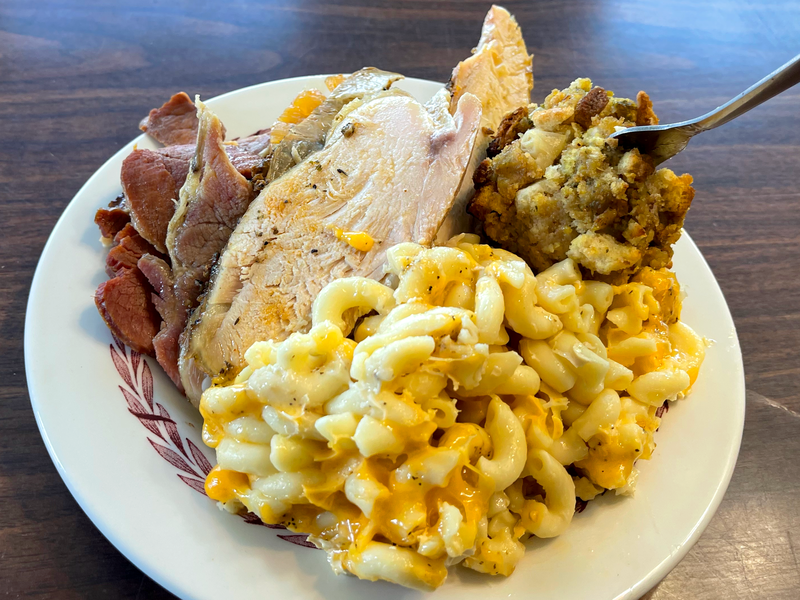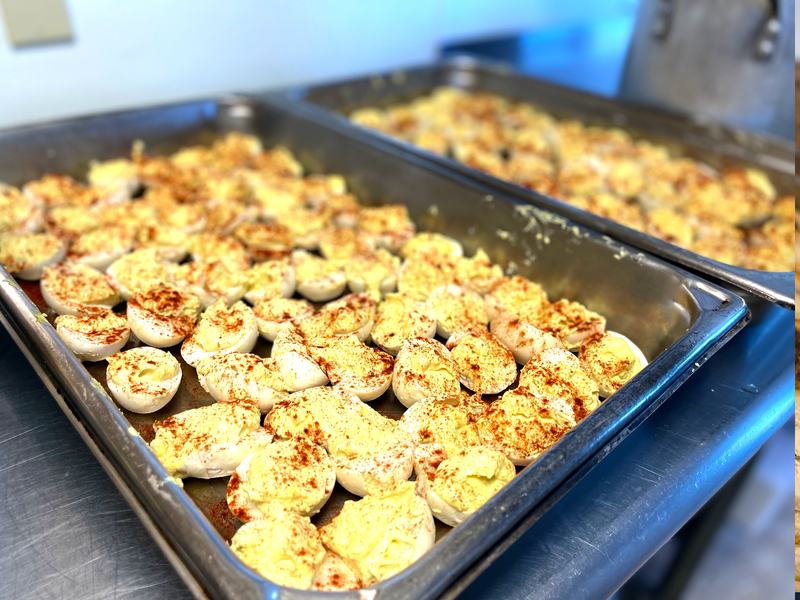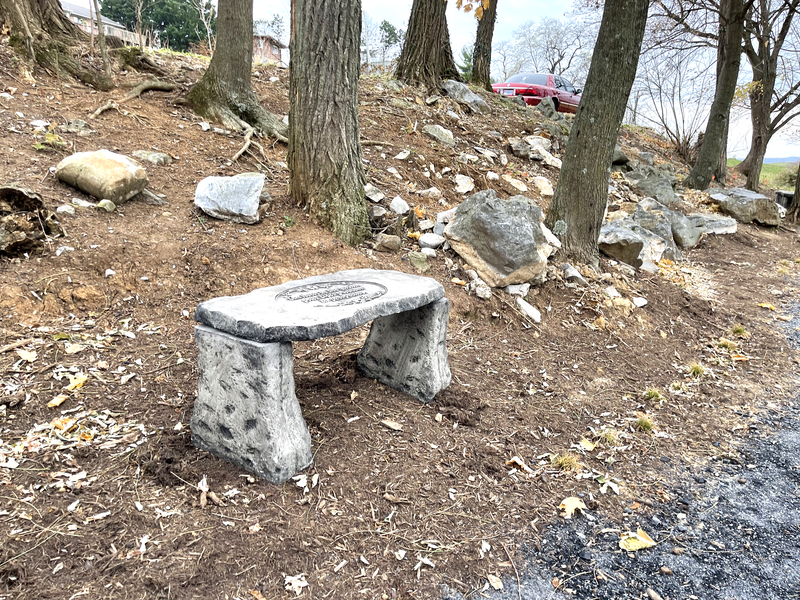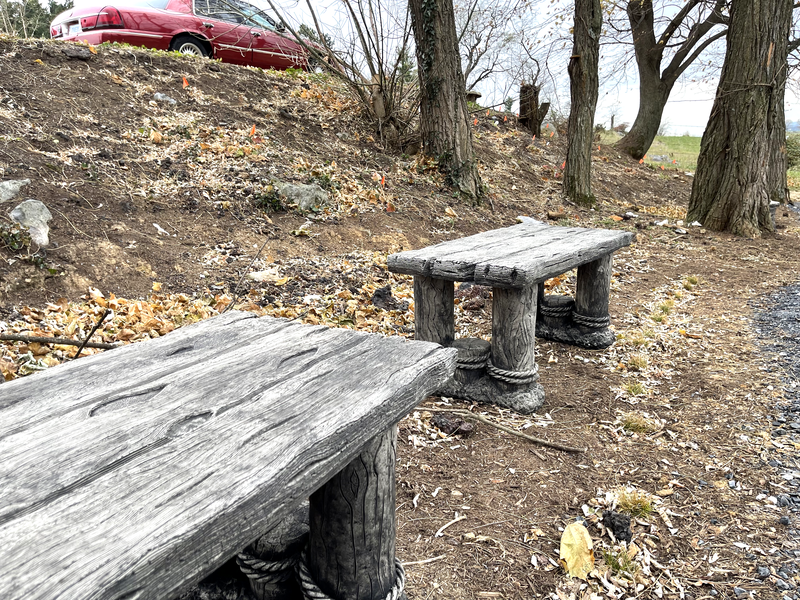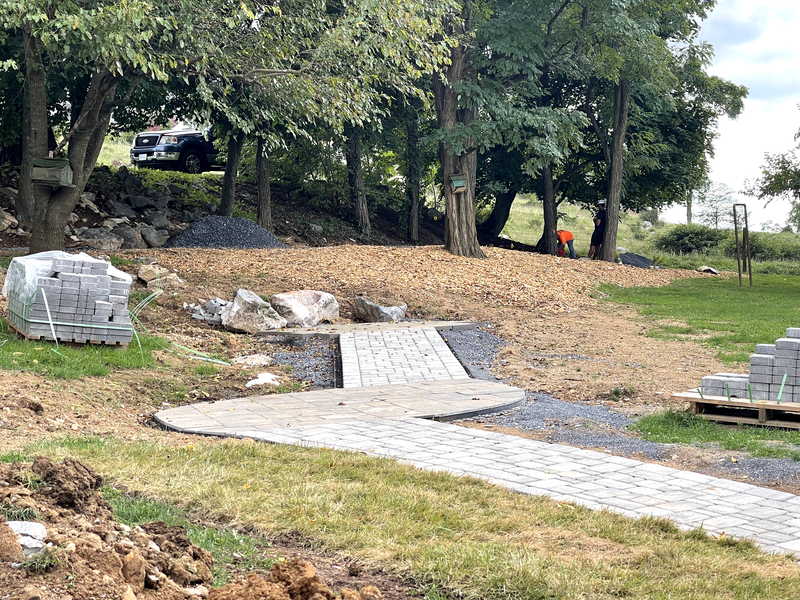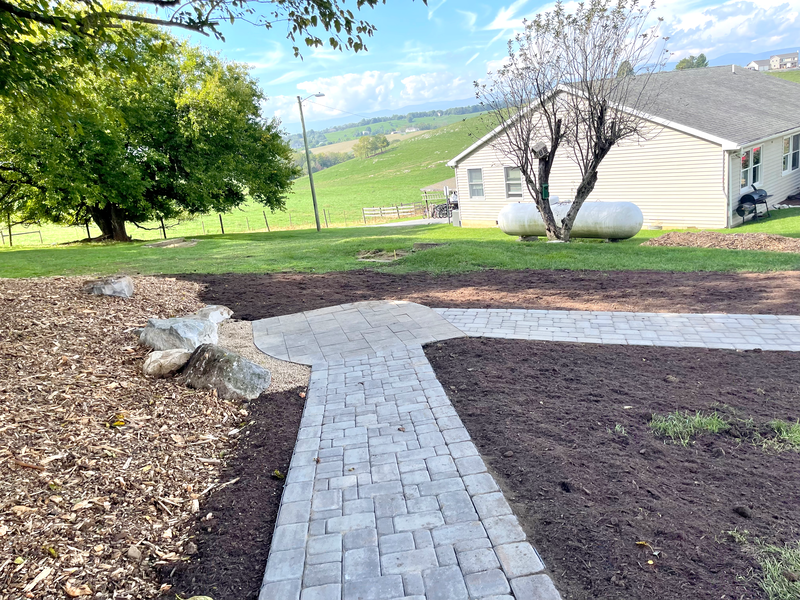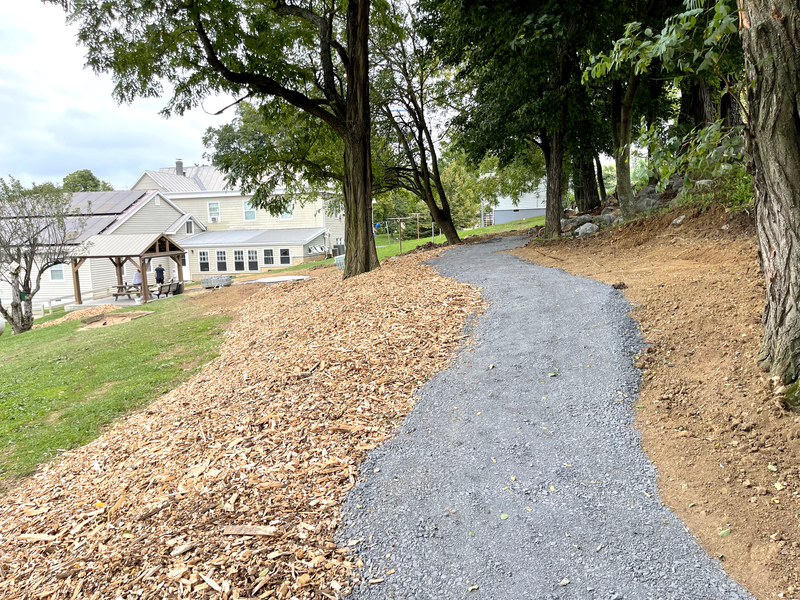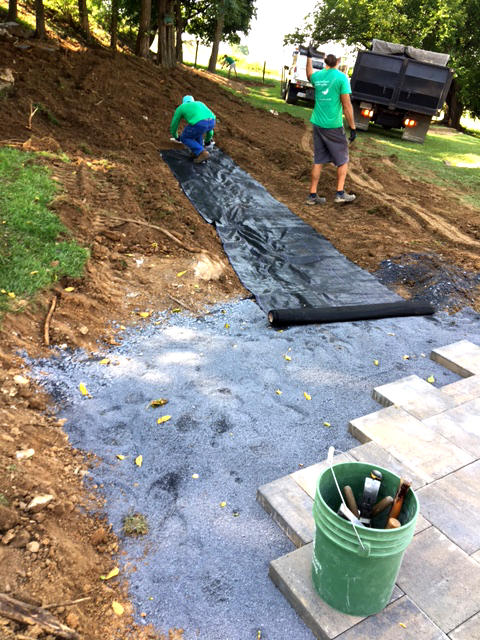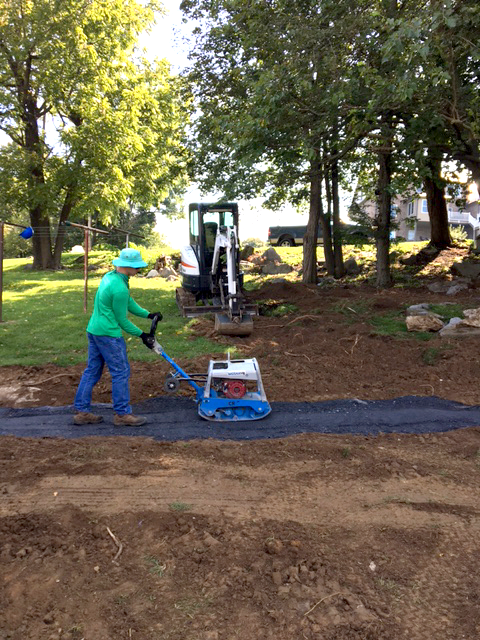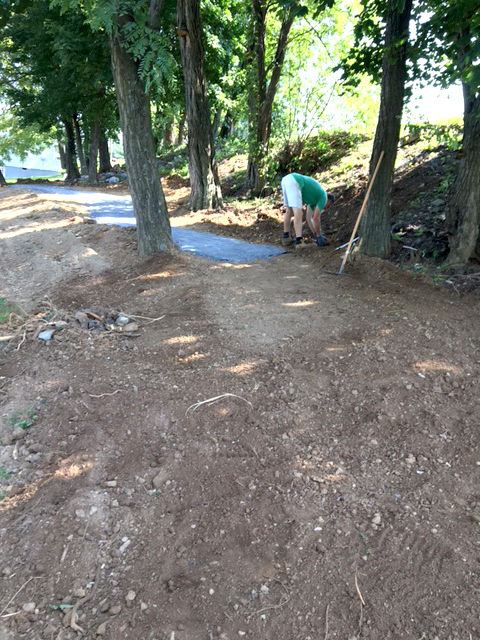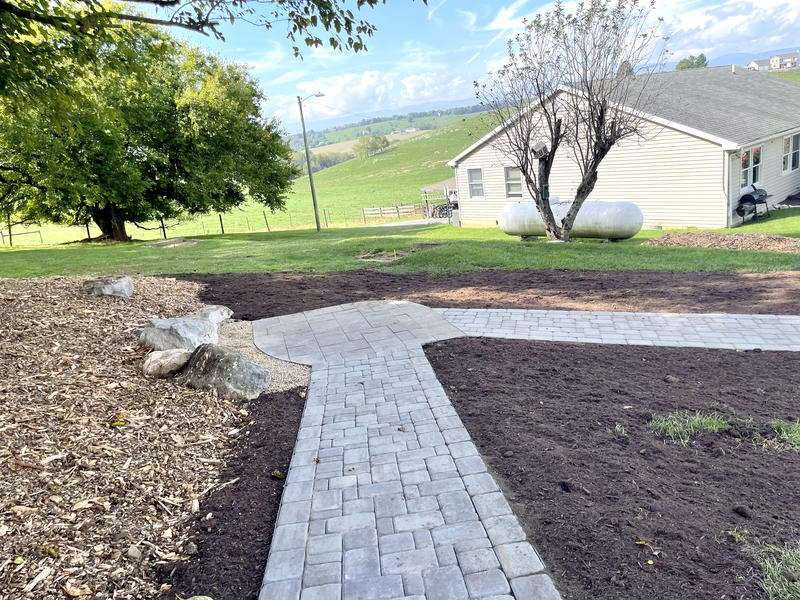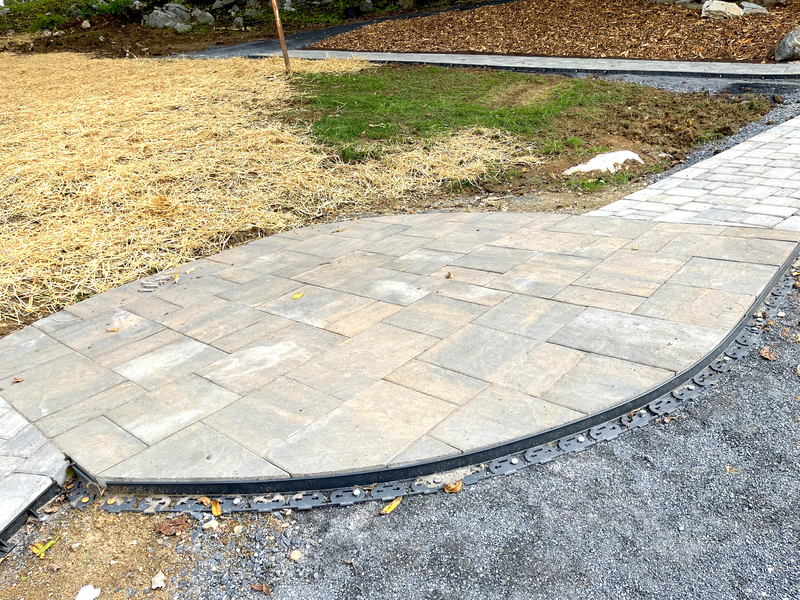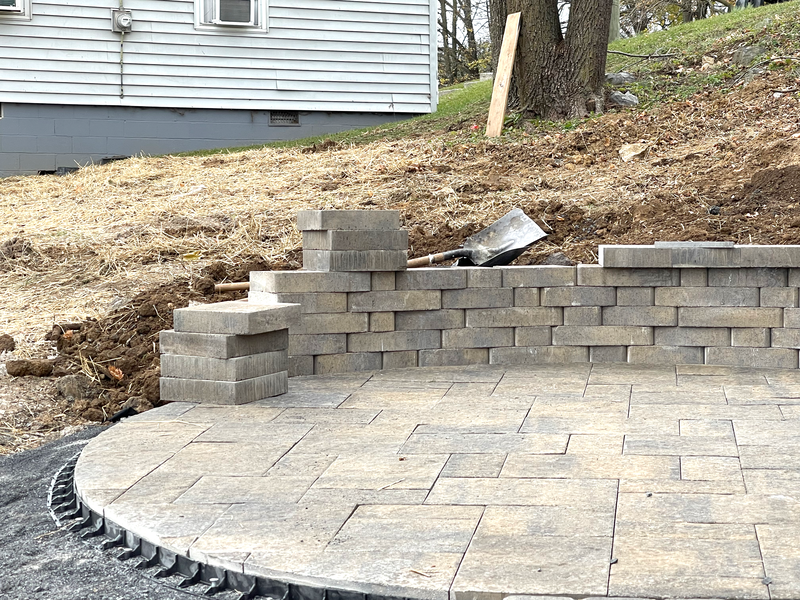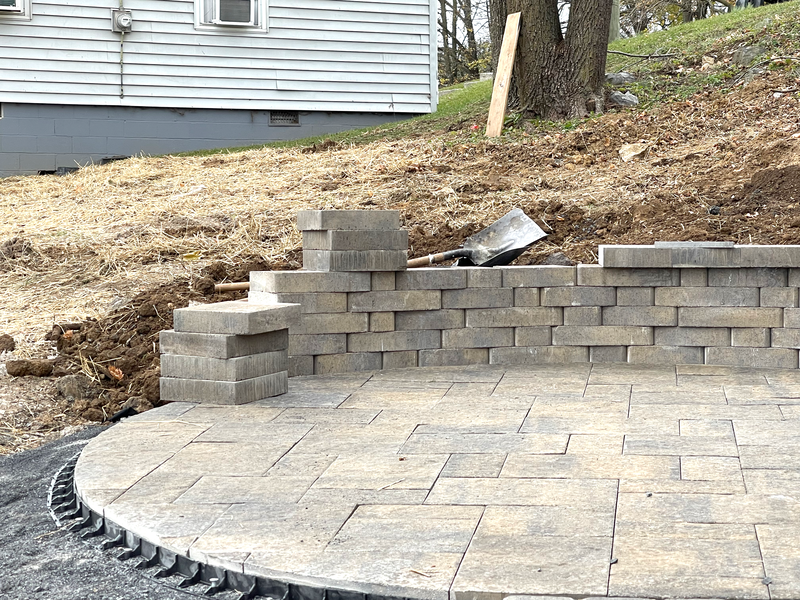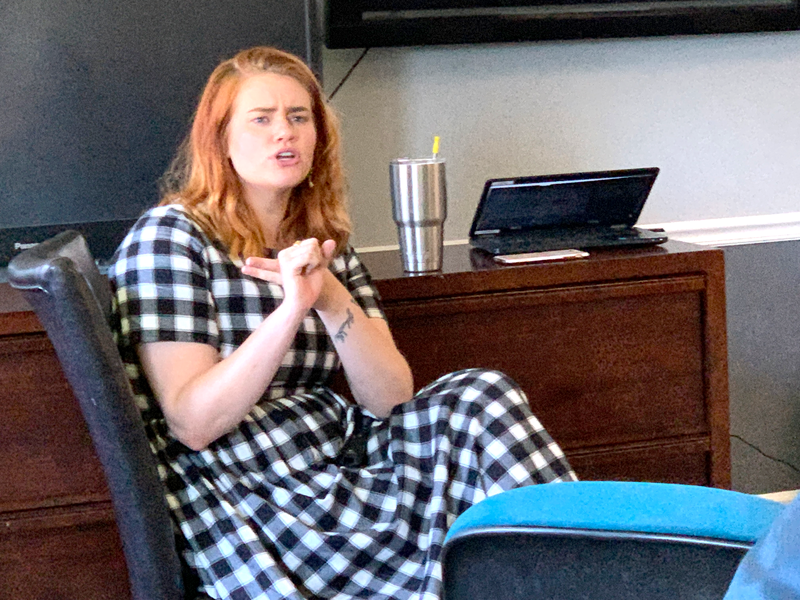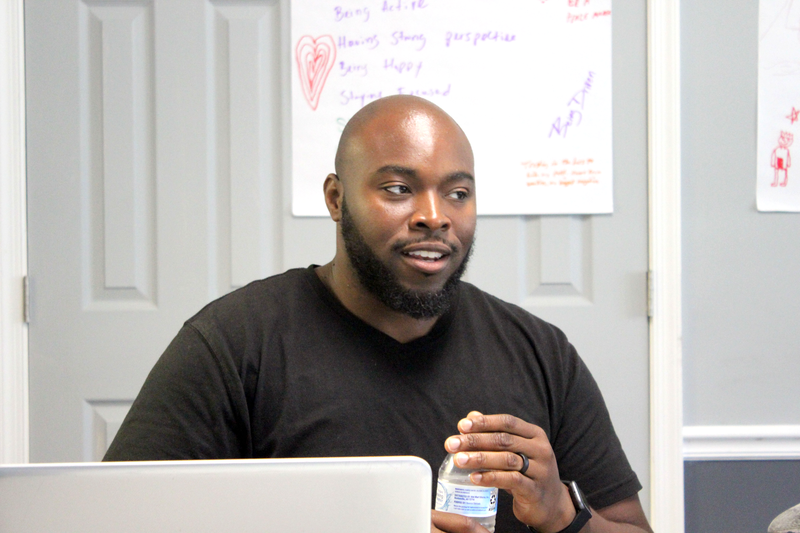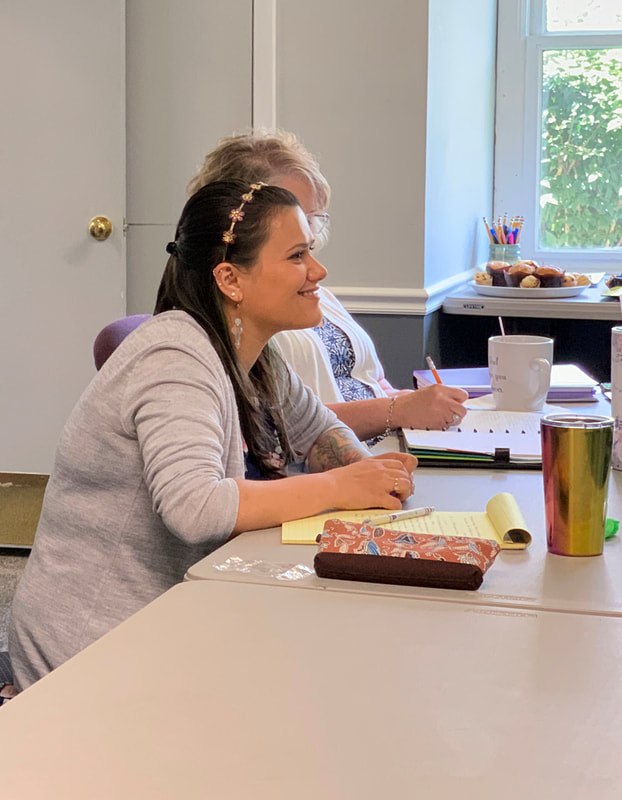|
Maintaining the grounds and facilities for only four years, Russell Smith brings a lifetime of work and care to Gemeinschaft Home. 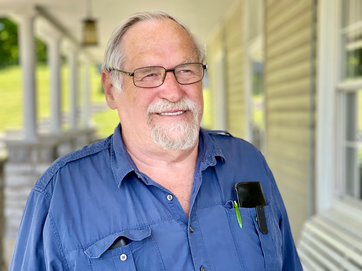 Russell Smith, Maintenance Coordinator Russell Smith, Maintenance Coordinator A native of the Shenandoah Valley, 74-year-old Russell Smith has spent his entire life around the local area, raising a daughter and working in various (though related) industries. When he joined the Gemeinschaft Home staff in 2018, he had been in retirement for a couple of years already and had found himself to be increasingly bored. Without the day-to-day bustle and activity of the workplace, Smith says he often struggled finding ways to occupy his time, joking,“If you don’t have a hobby, don’t retire.” Smith did not initially seek out employment with Gemeinschaft Home, but after he learned about the need for a maintenance person (the previous person had vacated the position earlier in the year), he offered to lend a hand with some urgent projects around the men’s home, which eventually led to a permanent part-time position. Today, Russell spends up to four days each week, usually during the morning hours, taking care of various tasks that range from lightbulb changes to more complex household repairs and equipment management. Maintaining a facility that accommodates up to 50 residents and staff office spaces requires continual attention, and Smith works diligently to address needed repairs himself or to coordinate the relevant professionals—from electricians and plumbers to HVAC specialists and building contractors. And, the scope of Smith’s work also widened last year, when Gemeinschaft Home opened the women’s residential facility on Old South High Street, as there are now two properties to maintain. Fortunately, he can lean on a wealth of work experience and a network of local colleagues, to inform his daily activities. While just 16 years old, in the 1960s, Smith started honing his mechanical skills by working on cars at Wheatley Yetzer Ford and after as a truck mechanic for almost a decade with Harrisonburg Food & Produce. He later worked in several hardware businesses, which eventually landed him a job in sales with Dillon Industrial Supplies, where he remained for the next 29 years until his retirement. Smith explained that one fulfilling highlight of such work was helping farms and local manufacturing or poultry processing facilities to find the right parts at an affordable price for an infinite number of machinery and equipment types. His knowledge base is wide, and his ability to troubleshoot a given repair problem is crucial for Gemeinschaft Home to run as efficiently as possible. Yet, in addition to his broad competence for most anything mechanical, it is Smith’s big heart for the mission and community of Gemeinschaft Home that is noteworthy and provides the basis for his continued involvement. On any given day, Smith can be found interacting with residents, in many cases, teaching them how to complete various repairs or helping them out with frequent activities such as putting dozens of lunch bags together for each mid-day meal or assisting them in other chores around the house. He is also quick to help staff members, particularly the food services manager, and often spends a lot of time on the road running various errands on behalf of the organization. “My job would be a lot more difficult, without Russell’s continuous help and support,” says Theresa Jarrett, who is in charge of the kitchen and food preparation. He often gets questions from friends and family members about his post-retirement employment at Gemeinschaft Home, an organization whose mission is unlike any context in which Smith has previously worked, but he has a sense of calling to be there. He readily embraces the opportunity to interact with individuals who are struggling to find their way, who face obstacles such as drug addiction and mental health issues, and who are trying to repair vital relationships with family and loved ones. So, while he is focused on the repair and maintenance of the physical facilities, he is equally committed to the emotional well-being of the program participants as well. Smith likes to joke that part of his job is “to come in and aggravate the residents,” which is his way of saying he enjoys engaging them in discussion: “The residents just need someone to talk to sometimes.” It’s not a requirement of the job to have any interaction with the Gemeinschaft Home program participants, but Smith argues it is an important reason for his continued commitment to Gemeinschaft Home, and everyone in our community is better for it. New funding will expand services and enrollment in the residential program for women launched in February 2021  Harrisonburg, Virginia — The U.S. Department of Justice has awarded a $750,000 grant to Gemeinschaft Home, a nonprofit located in Harrisonburg serving adult men and women who have been recently released—or diverted—from incarceration. Working with professors Amanda Teye and Lili Peaslee, and students in the master’s of public administration program at James Madison University, and public relations coordinator Jennifer Jacovitch, Gemeinschaft Home submitted the grant application in May 2021, with the award announced in late December. The new federal funding, disbursed over three years, will support the Gemeinschaft Reentry Opportunities for Women (GROW) project—a six-month program for female (ex)offenders in the local area that combines residential and non-residential services aimed at helping them transition back into the community. The GROW project will expand program offerings and number of participants in Gemeinschaft Home’s current women’s home, opened in early 2021, and will help Gemeinschaft Home be a model for prison re-entry programs, particularly those serving women, throughout Virginia. The program is designed to lower the likelihood of re-incarceration and to enable participants to gain the necessary tools for independent living, including individual case management, employment assistance, evidence-based life-recovery curricula, and referral access to mental health and substance abuse interventions. Administered through the Office of Justice Programs’ Bureau of Justice Assistance, this grant was made possible by the Second Chance Act (SCA), signed into law in 2008 and reauthorized in 2018 to support state, local and tribal governments, and nonprofit organizations, in their work to reduce recidivism and improve outcomes for people returning from state and federal prisons, local jails and juvenile facilities. Established in 1985, Gemeinschaft Home began as a residential, transitional facility for adult individuals who have been released from incarceration and have a probation obligation with the Virginia Department of Corrections. While maintaining the residential re-entry program contract with the Commonwealth of Virginia for (ex)offenders for over three decades, Gemeinschaft Home has continued to grow through partnerships with regional jails facilities and the Rockingham-Harrisonburg Court Services Unit and now operates homes in two locations—1423 Mt. Clinton Pike (men’s facilities) and 110 Old South High Street (women’s facilities). Last year the organization served more than 300 individuals across all programs. For more information, contact Jennifer Jacovitch at [email protected]. Hotel Madison displays Christmas trees featuring local area businesses and nonprofit organizations. 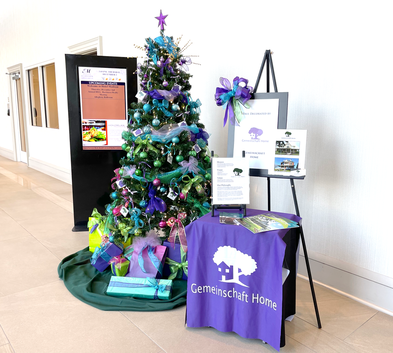 Gemeinschaft Home is one of 17 participants in the second annual Christmas tree decorating contest at Hotel Madison and Shenandoah Conference Center in Harrisonburg. Featured on two floors of the hotel’s lobby, each Christmas tree was provided and decorated by local area businesses and nonprofit organizations, offering visitors a dramatic display of holiday cheer. Show your support for Gemeinschaft Home by voting for our tree to win! Anyone who votes (whether in-person or electronically) will receive a 10% discount coupon to Montpelier Restaurant as a thank you. Voting is open now through December 26, and you can cast your vote in three ways: 1. Visit Hotel Madison in person. Ballots are located at the front desk. 2. Go online to www.hotelmadison.com, and click the “Christmas Tree Contest” 3. Text TREE to 31996. Winners and prizes will be announced on December 28, 2021. Help spread awareness about Gemeinschaft Home and show your support by helping us win! 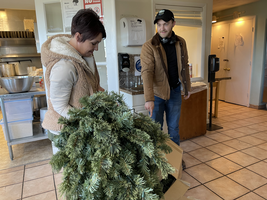 While the holidays represent a cherished moment in the year to share with family and friends, they can also be full of stress and difficult challenges for many people. The participants in Gemeinschaft Home’s residential programs are in a moment of transition, whether exiting incarceration or joining the program to tackle personal struggles with mental health and substance abuse. The majority are physically separated from their families and loved ones during this season, which adds yet another obstacle to overcome during the holiday season. Over the years, the Gemeinschaft Home community has sought to create a comfortable home environment for residential participants, an atmosphere that is readily noticeable to all visitors who come through the front door of the men’s home on Mt. Clinton Pike. The women’s home on Old South High Street has also taken on a warm and cozy vibe as the program and facilities have continued to develop this year. Participants in both houses have spent time this month adding holiday decorations, including a Christmas tree, window wreaths, and other elements, which has contributed to a positive seasonal vibe. Residents continue to work and participate in program requirements during this time, but overall, there is a slower place, giving everyone a chance to relax, enjoy televised sports games or movies, and just spend some downtime together. The staff also strives to make the season special, which is especially important for those participants who have lost family members during the time they were incarcerated or have become alienated from them and are in the process of reestablishing connections with parents, significant others, and children. For Thanksgiving this year, Gemeinschaft Home’s residential participants received a truly wonderful gift—a fully home cooked Thanksgiving Day dinner. Instead of taking the day off to be with her own family, Theresa Jarratt (food service manager) spent the morning of (and the days prior to) Thanksgiving preparing an enormous spread of traditional foods for the occasion, including roasted turkey and ham and familiar side dishes such as mashed potatoes and candied yams. Everyone convened at 1PM and enjoyed the great feast together in one of those rare instances when all the participants were in the home at the same time. Generally, the wide variety of work schedules prohibit such a large gathering, but Thanksgiving Day provided such a moment. The smells of good food wafted through every corner of the house, combined with the sounds of football games on tv, and relaxed conversations and laughter. Even though they residents could not be with their families that day, they were able to mark the occasion with a fantastic home cooked meal, surrounded by others in celebration—and they got to enjoy the leftovers throughout the weekend! There are a few special more special treats in store for the Gemeinschaft Home residents to celebrate the remainder of this holiday season with joy and in the spirit of giving and fellowship. We strive to make it truly a home for our program participants, not just during the holidays, but throughout the whole year, as well!  An increase in recent social media posts about Gemeinschaft Home are thanks to the hard work of a dedicated group of university students during Fall 2021 semester. Bluestone Communications is a public relations firm comprised of advanced students studying at James Madison University’s School of Communication Studies, under the leadership of Dr. Isaac Woo. Each semester, local businesses and organizations apply to work with Bluestone Communications on a public relation project that benefits the organization and gives the students valuable real-world experience. While Bluestone Communications usually charges a small fee for their services, as a community-based nonprofit, Gemeinschaft Home was honored to be selected as a pro bono client this year. Bluestone Communications spent months working with Gemeinschaft Home staff to develop and execute a plan to increase information published on Gemeinschaft Home’s social media platforms—Facebook and Instagram—as well as spreading awareness among JMU students in an on-campus event this month. The team members created original content, including photographs, video, and language about our residents and programs, as well as a schedule structure for future posts. Faculty Director Dr. Isaac Woo James Madison University School of Communication Studies Team Members Helen Nguyen (Account executive) Morgan Pecoraro (Account coordinator) Brianna Palmer (Account associate) Kendall LoMauro (Account associate) Megan Barton (Account associate) Morgan Vuknic (Intern) Katelyn Arney (Intern) A Natural Space for Healing and Reflection 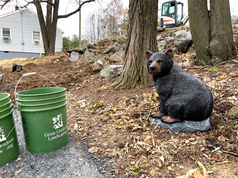 Construction has been ongoing throughout the fall on our new therapy garden, a calming space designed to foster peace and tranquility for program participants. The garden was made possible through donations from the 2020 Vision for the Future fundraising campaign, as well as subsequent contributions, and will be finished in spring 2022. Located behind the men’s home on Mt. Clinton Pike, the therapy garden will occupy a large space on the property and provide stunning views of the mountainous panorama and farmlands surrounding Gemeinschaft Home. Divided into “rooms” the garden will feature concrete and wooden seating structures, statues, a variety of shrubs and plants, and a water feature near the back end. Great Outdoors Landscaping, LLC has been hard at work throughout the fall months, laying the groundwork for handicap accessible paths—both brickwork and crushed gravel—which includes stone walls as well. The remaining plant life will be arranged and planted during the spring 2022 months. We look forward to welcoming you to our new garden this spring/summer! Gemeinschaft Home's women residents relax and have some fun at home! 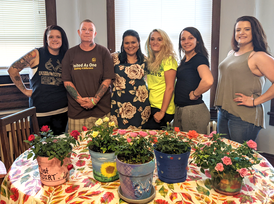 Day to day life is quite structured for women enrolled in the residential program. While not required to work, all participants are encouraged to maintain active employment, and most do so in conjunction with the program group sessions (life recovery curriculum), community service obligations, and other court-mandated and outside treatment requirements. Yet, case manager Michelle Roberts stresses the importance of establishing a healthy home environment for residents during their free time, just to acclimate them to the idea of home as a safe and stable refuge from the world, a source of social well-being and support—and even fun! Roberts often organizes evening group sessions that are designated as “home activities,” including sessions in which residents work together outside on a gardening project, play games, have a movie night with popcorn, or do self-care groups with face/mud masks, etc. Whatever the activity, the goal is to provide participants with a model for living beyond the streets. These moments provide an opportunity for stress relief and respite from the outside world, and they also contribute to the overall growth of everyone in the program. Do you ave an idea for a fun activity and would like to volunteer an evening of time with Gemeinschaft Home’s residents? Let us know! A Conversation with one of the first graduates of Gemeinschaft Home’s residential program for women. 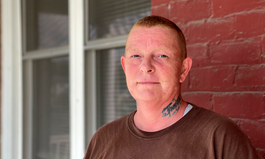 For over two decades, 44-year-old Christina “Chris” Ongaro was always moving—most often on foot—from one place to the next. “I’ve just always walked everywhere. Whenever something happened to me in life, I just started walking,” she explains. However, the destination was always the same—anywhere she could obtain alcohol and crystal methamphetamine—and other concerns, such as where she would sleep that night or where she would go the following day, were a lower priority. “I would help cover some rent here or there, to sleep on a sofa or have a place to stay for few nights, and then I would figure out something else later,” Ongaro says, adding that sometimes she would be awake for days before finding a place to sleep, and then the cycle would start over again. “I didn’t want to feel anything at all. I just wanted to escape.” In such moments, Ongaro would sometimes shoplift items from various stores, often just because she felt emboldened to do so, but also to support her addictions. She always wanted to be surrounded by substance abusers, noting that she willfully avoided family members and loved ones, to spend time exclusively with others actively submerged in their addictions. Occasionally, she would face a drug possession (or other low-level) conviction and serve time behind bars, only to return to the streets when she was released from incarceration. Ongaro is originally from Florida and moved permanently to Virginia about 16 years ago. While she did not discuss her personal/family life or childhood at length, Ongaro revealed that she had grown up in a toxic home environment, with an abusive father who terrorized both her mother and siblings. She spoke specifically about her father’s violent attacks on her mother, episodes that she witnessed firsthand as a child, and how those experiences shaped her relationship with her mother as an adult. Battling a variety of health problems of her own in recent years, Ongaro’s mother relied on her heavily for ongoing care, which she managed despite being active in her own addiction. Her mother was one of the few constants in her life. Yet, she could no longer care for her mother after she was incarcerated again at the Virginia Correctional Center for Women in Goochland in 2017. By the time Ongaro was released in August 2020, her mother had passed away, a shocking reality that made staying sober and off the streets impossible, and she started to spiral downward nearly immediately. She had returned to Harrisonburg on probation, but she had nowhere to live. After a brief (unsuccessful) stay at a local Oxford House, she resumed her usual pattern of moving from one place to another. She was enrolled in the Gemeinschaft Home Day Reporting Center (DRC) program, but without a stable living situation, she struggled to gain much from the experience and admitted to continuously using drugs, despite regular testing requirements. Faced with termination from the program, she attempted a stay at Arbor House in Harrisonburg, to get stabilized, but she left after realizing that her substance abuse problem was more pressing than the mental health concerns that were addressed there. Ongaro was out of options, and she recognized that she was in violation of her probation conditions (i.e., using drugs and not completing a mandated program). She understood well that the upcoming check-in with her probation officer—just days away—would result in another stint behind bars. With nowhere else to turn, she made the decision to turn herself in early, and in December 2020, she started a six-month sentence at the Rockingham-Harrisonburg Regional Jail as punishment for her probation violation. Fortunately, when she was released in May of this year, she had a new opportunity for help, one that had not existed only a few months prior—the newly established women’s residential program at Gemeinschaft Home. With a seven-year prison sentence still hanging over her head, time she would serve if she violated the terms of her probation again, Ongaro needed urgent help to remain clean and sober and to establish a new direction for her life, which necessitates the safety, security, and structure of a residential program. For Ongaro, who has spent her entire adult life with no sense of stability or consistency, the opportunity to be in full-time residential program with 24/7 support has been a life changing experience. Today, she is one of the first women to successfully complete the 90-day program, but the journey has presented several challenges. “I admit that I was not easy for the staff to handle sometimes,” Ongaro says, citing one incident when everyone in the house lost their pass time privilege (several hours of personal time away from the house) for not completing household chores. She exploded in anger, shouting at other residents and staff members, and the episode concluded in a one-on-one discussion with her case manager, Michelle Roberts, who Ongaro argues is the single reason she finished the program. “Michell told me, ‘I am going to keep believing in you until you start to believe in yourself,’ which really stuck with me,” Ongaro says. Primarily, Michelle has helped her to understand the importance of processing emotions, something that Ongaro always managed to avoid—walking away from conflict and escaping into drug and alcohol abuse. “I needed to learn how to hit the pause button, to reflect on a situation before acting on it,” she explains. The life-recovery group sessions have reinforced concepts like this, and while discussing personal emotions has been a new experience for Ongaro, she stresses the importance of having a strong circle of social support to do so. She is now a graduate of the program, but she will continue some of the structure she established while living at Gemeinschaft Home, such as still participating in the day reporting program, attending AA meetings twice a week and a drug abuse group session once a week. She will also maintain her current employment with Mercy House in Harrisonburg—a position she was offered after completing some community service hours there while in the program. But she also plans to visit Gemeinschaft Home in the future, to mentor future residents, saying, “If this program can help me to change, it can help anyone to change.” Ongaro states unequivocally that without the Gemeinschaft Home program, she would not be where she is today: sober, employed, and ready to move into her own home. She knows the road ahead is going to have some sharp turns, but she has a stronger foundation than ever before to grow roots and build a life. Gemeinschaft Home staff participate in a summer workshop to learn more about trauma and trauma-informed care. 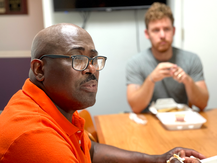 Definition of Trauma Individual trauma results from an event, series of events, or set of circumstances that is experienced by an individual as physically or emotionally harmful or life threatening and that has lasting adverse effects on the individual’s functioning and mental, physical, social, emotional, or spiritual well-being. (SAMHSA definition 2014) Professional development opportunities such as ongoing certification programs, college coursework, and community-based workshops help to keep staff members informed on new and best practices, particularly in the fields of substance abuse and mental health.Staying up to date on such knowledge and approaches is vital for us to provide the best possible services to the individuals we serve. In June, Gemeinschaft Home program staff participated in a one-day workshop led by Brandy Haden, Behavioral Health and Wellness Coordinator with the Harrisonburg-Rockingham Community Services Board. Largely based on research from SAMHSA (Substance Abuse and Mental Health Services Administration), the workshop, “Surviving and Thriving: Trauma and Resilience,” gave staff members a chance to define and discuss trauma as a concept and as a significant factor in the lives of many program participants. Staff members learned about signs and symptoms of trauma, as well as some of the key components of trauma that individuals experience and how they affect their behavior and actions. While staff members cannot formerly diagnose an individual with trauma, having a more informed perspective enables them to connect participants with necessary resources more readily. Many formerly incarcerated individuals have experienced trauma, both throughout their lifetimes and during incarceration, and face numerous challenges when transitioning back to life after prison. Many have never had any formal treatment interventions to cope with such experiences as well. Knowing more information about various types of traumas and the risks involved will help Gemeinschaft Home staff provide better guidance (such as referrals to appropriate services) for the individuals we serve in both the residential and non-residential programs. Local nonprofit brings music to the women’s program. 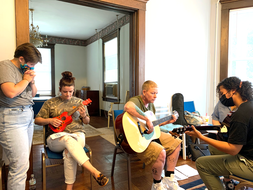 In addition to life recovery group sessions and community service obligations, all residents also participate in various enrichment activities that help build on the tools they gain in the program. Since the opening of the women’s program early this year, residents have had several opportunities to work with volunteers in workshop settings on topics including self-defense instruction, creative writing, arts and crafts, as well as a music collaboration. Amplify Music, a local nonprofit founded by Rebecca Kenaga, a recent JMU graduate who worked on previous music collaborations with the Gemeinschaft Home male residents, also began working with the participants in the women’s program in late spring. Amplify Music focuses on individuals in crisis, particularly those have been incarcerated, using music engagement as a mechanism for social change, and they offer services in education settings as well. “When someone who has faced incarceration, homelessness, abuse, addiction, and trauma realizes they are capable of creating something beautiful out of themselves, they realize they are also beautiful and capable of doing many other things they might not have acknowledged before,” says Kenaga. Throughout the summer, Kenaga and her colleagues offered weekly music sessions in which residents composed lyrics and music in structured activities to foster collaboration and discovery. With support of several recent grants, Amplify Music also provides resources such as musical instruments, recording equipment, and even digital devices such as tablets and Chromebooks to facilitate each resident’s involvement in the creative process. We look forward to sharing more with you about this ongoing collaboration! For more information about Amplify Music, visit www.amplifymusicva.org. |
Archives
August 2023
|
